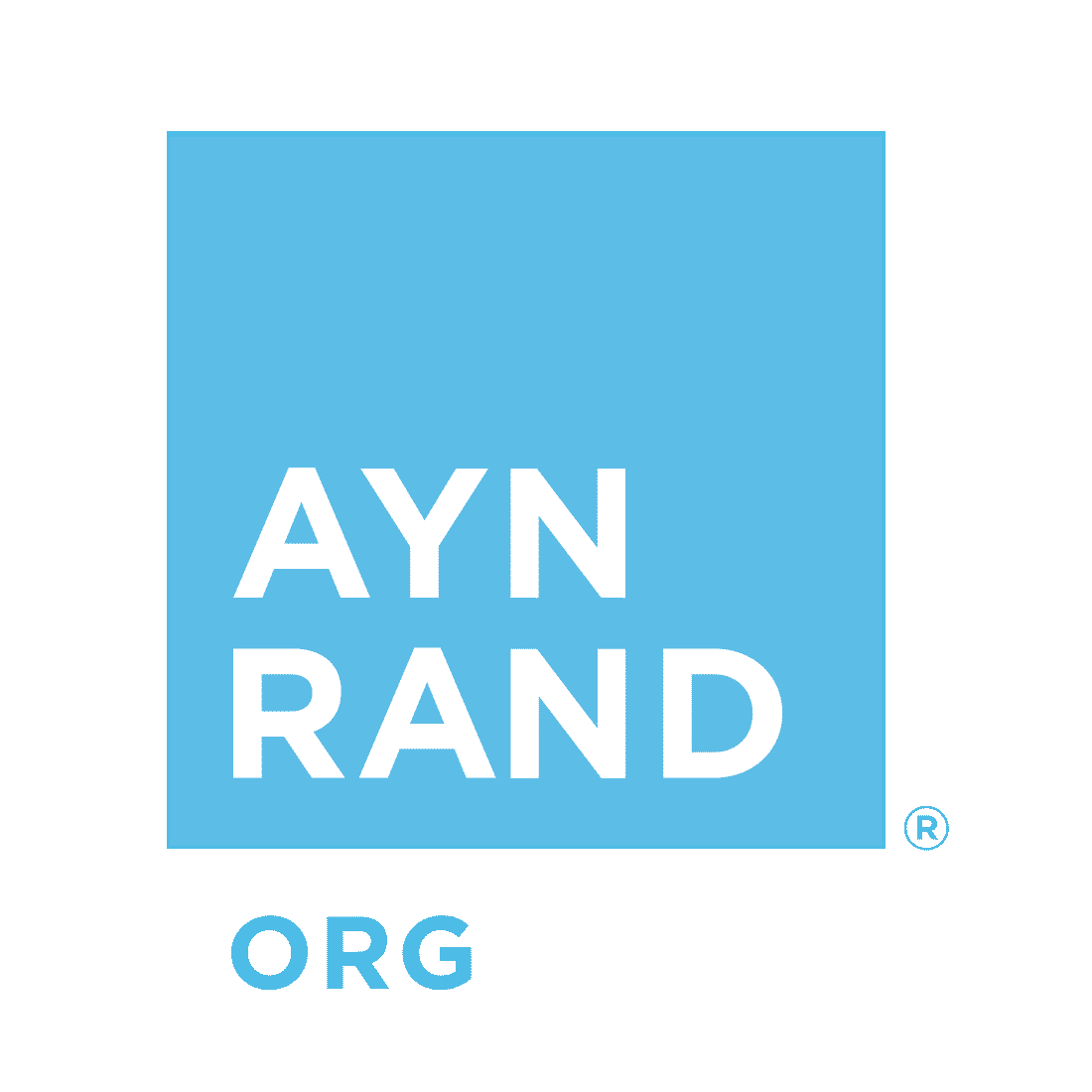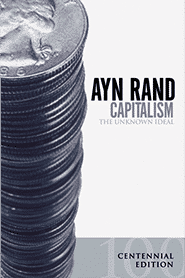

Readers of Atlas Shrugged are struck by the moral fire of Ayn Rand’s defense of business and capitalism. She does not regard capitalism as an amoral or immoral means to some “common good” — as do most of its alleged defenders — but as a profoundly moral social system.
Capitalism, Rand argues, is not today’s system, with its mixture of freedom and government controls, but a social system in which the government is exclusively devoted to the protection of individual rights, including property rights — one in which there exists absolutely no government intervention in the economy.
This book is not a treatise on the economics of capitalism, but a collection of essays on the philosophy of capitalism: the basic truths and principles that make capitalism the only moral and practical social system — the only system consistent with man’s nature and the requirements of his life — the only one that enables each individual to reach his full, glorious potential.
“The method of capitalism’s destruction,” Ayn Rand writes, “rests on never letting the world discover what it is that is being destroyed.” In Capitalism: The Unknown Ideal, Rand and her colleagues define a new view of capitalism’s meaning, history, and philosophic basis and set out to demolish many of the myths surrounding capitalism.
Does capitalism lead to depressions, monopolies, child labor or war? Why is big business so hated? Why have conservatives failed to stop the growth of the state? Is religion compatible with capitalism? Is government regulation the solution to economic problems or their cause? What is freedom and what kind of government does it require? Is capitalism moral?
Capitalism: The Unknown Ideal tackles these and other timeless questions about capitalism, and lays out Rand’s provocative thesis: that the system of laissez-faire capitalism is a moral ideal.
“By their silence — by their evasion of the clash between capitalism and altruism — it is capitalism’s alleged champions who are responsible for the fact that capitalism is being destroyed without a hearing, without a trial, without any public knowledge of its principles, its nature, its history, or its moral meaning. . . .
“The method of capitalism’s destruction rests on never letting the world discover what it is that is being destroyed — on never allowing it to be identified within the hearing of the young.
“The purpose of this book is to identify it.”
— Ayn Rand, “Introduction,” Capitalism: The Unknown Ideal
Laissez-faire capitalism, according to Ayn Rand, is not just an ideal but an unknown ideal. Few grasp its meaning, history, economics, or moral justification. In Capitalism, Rand sets out to remedy that.
Rand argues that capitalism is “a social system based on the recognition of individual rights, including property rights, in which all property is privately owned.” In practice, this means that a capitalist society is one in which the government performs a single function: it protects individual rights by banning “physical force from human relationships.”
Pure capitalism, she concludes, has never existed: but in the countries that approached it, with America in the second half of the nineteenth century leading the way, the individual was able to flourish. This is because capitalism is the only system that fully recognizes that man is the rational being who “has the right to exist for his own sake,” free from coercion by others.
Capitalism, according to Rand, is the social system in which the government’s only role is to protect individual rights. But what are rights? What rights do individuals have? And why is this the only proper function of government?
Agreeing in essence with the Founding Fathers — that man’s basic rights are the rights to life, liberty, property and the pursuit of happiness — Rand argues that their view of rights had never been fully defined and defended. As a result, it was vulnerable to attack by anticapitalists who both inflated the concept of “rights” to include such notions as the “right to a job” or the “right to medical care,” and who declared that the government should override individual rights for the sake of “the common good.”
Rand addresses these and many other misconceptions about rights, concluding that only a proper understanding of rights can save capitalism.
Throughout Capitalism: The Unknown Ideal, Rand stresses that “We are not a capitalist system any longer: we are a mixed economy, i.e., a mixture of capitalism and statism, of freedom and controls.”
One of the main ways in which opponents smear capitalism is by ascribing to it disasters created by government intervention. By identifying America as a mixed economy, Rand implies that we must ask of any problem: What part of the mixture created it? The free element or the controlled element? We cannot immediately leap from the fact that there is a problem to the conclusion that it is caused by capitalism.
A mixed economy, on Rand’s view, is not only a mixture of freedom and controls, but an unstablemixture. Because the government uses physical force to dole out punishments and rewards arbitrarily, it unleashes pressure-group warfare, as citizens gang up on each other to vie for special favors.
Ayn Rand regards business as a noble endeavor, and she viewed the persecution of business — especially under the antitrust laws — as one of the most shameful aspects of contemporary America.
“The American businessmen, as a class, have demonstrated the greatest productive genius and the most spectacular achievements ever recorded in the economic history of mankind. What reward did they ever receive from our culture and its intellectuals? The position of a hated, persecuted minority. The position of a scapegoat for the evils of the bureaucrats.”
Of course, Rand did not regard every businessman as noble. Some were crooks posing as businessmen, while many more were “the men with political pull, who made fortunes by means of special privileges granted to them by the government.” Rather, Rand’s point is that the profession of business is profoundly moral and so are its actual practitioners.
“Objectivists,” Rand said, “are not ‘conservatives.’ We are radicals for capitalism; we are fighting for that philosophical base which capitalism did not have and without which it was doomed to perish.”
Conservatives, Rand argues, are afraid to advocate or defend capitalism. Why? “They are paralyzed by the profound conflict between capitalism and the moral code which dominates our culture: the morality of altruism. Altruism holds that man has no right to exist for his own sake, that service to others is the only justification of his existence, and that self-sacrifice is his highest moral duty, virtue, and value. Capitalism and altruism are incompatible.”
Only by rejecting altruism and defending man’s right to exist for his own sake, Rand concludes, can you defend capitalism. “Those who wish to fight for [capitalism] must discard the title of ‘conservatives.’”